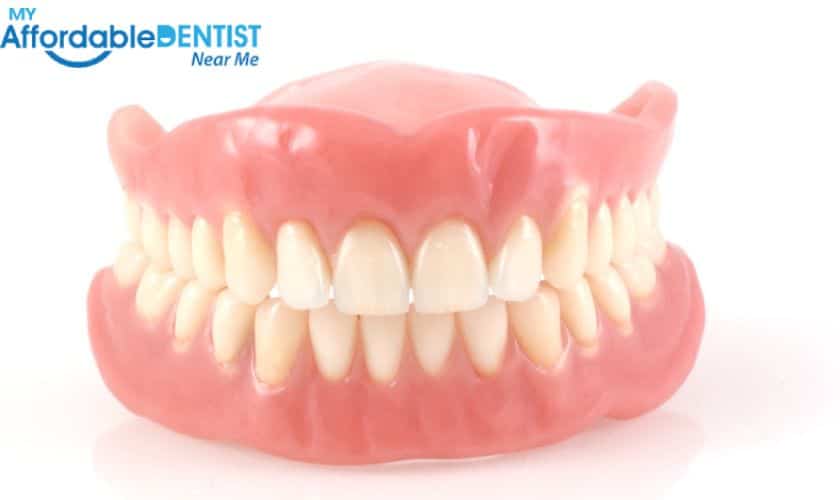Hey, so you are now one of the millions of people in the U.S. who wear dentures. A denture is a foreign object and can never duplicate the exact feel and function of your natural teeth. It's certainly going to be a new venture that will take some time to adjust.
Dentures are very personal and no two people have the same experiences. We can tell that some patients find it to be challenging. There's a probability of anxiety and worry but fortunately there are really no major problems assoicted with dentures. Of course there will be some minor adjustments, but they are designed to provide you with a healthier mouth and better appearance.
Adjusting To Your New Dentures.
When the dentures are set and in place, you may find that your face looks full and that you have quite a mouthful. The teeth seem to be longer, your lips look out of place and your tongue feels crowded. You may also notice your salivary glands working overtime resulting in increased saliva. The first couple of weeks can take a bit of getting used to - pain and discomfort may occur but as each day passes, your mouth muscles adapt and adjust to the new dentures and you'll slowly get used to the different sensation in your mouth. Some people could have a gag reflex when putting in or putting out their dentures. You should be able to learn the trick of controlling it - with patience and will power.
Have Patience.
Unfortunately there are no books, classes or lessons on dentures, the trick is to wear them constantly and in no time you'll master the art and get used to it. It's very similar to learning to drive. While some learn without difficulty and some have a hard time, but in the end everybody can learn. Yes, with daily practice and patience, you can learn too.
Practice Talking.
Patients may have difficulty in speaking clearly and distinctively, and develop a tendency to lisp, caused mostly by the dentures that alter the shape of the mouth. Worry not, as the moment your tongue, cheeks and tongue become accustomed, speech returns to normal. However, you can practice talking in front of a mirror for a few minutes until you feel comfortable.
Eating.
You will be able to eat most of your regular normal diet within a few weeks. Howerer, remember to start with soft, easily managed food in the beginning. You can rely on chopped meat and tender vegetables, take small bites and chew gently, distributing the pressure evenly on both sides of the mouth. If you must depend on hard food such as apples or corn; develop the habit of pushing back a little while eating. This method produces the leverage needed to keep dentures in place.
Night Time - Sleeping With Dentures.
Some people like to wear their dentures all the time. Although the habit brings no harm, you would want to be careful if you grind your teeth while sleeping. The chances of waking up with a sore mouth are high in this case. Sleeping without them, on the other hand may cause your facial muscles to ache. Consider wearing them even at night during the first few days and once you have become accustomed to them, you should take them out at night, followed by a good cleaning routine.
Soreness.
A certain amount of discomfort is normal while your gums grow accustomed to their new task. If a sore spot develops, rinse your mouth with warm salt water and return to the practice of denture adjustment. If the pain still continues, you should see your dental professional for prompt relief.
Your dentures can attract stains and tartar, therefore it is recommended that you clean your dentures everyday to keep them natural and clean looking. When not wearing, keep them immersed in water to prevent it from drying out.
Your gums and jaw bone will continue to recede and as result dentures will eventually feel loose.
Such situation requires you to see your dentist for denture repair. 

